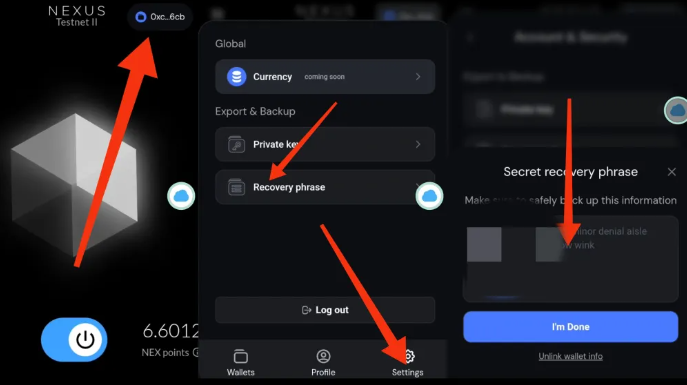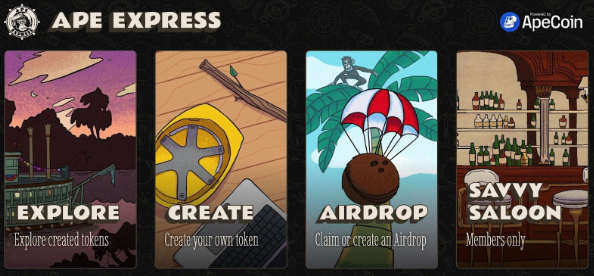Dinari Brings U.S. Stock Trading On-Chain With RWA Tokens — Airdrop Guide Included
Dinari Taps Into the RWA Boom by Bringing U.S. Stock Trading On-Chain
The Real World Asset (RWA) narrative continues to gain momentum, becoming one of the hottest sectors in crypto—second only to memecoins in recent growth. Major traditional financial institutions have projected that the RWA market could reach $4–5 trillion, with BlackRock forecasting as much as $10 trillion by 2030. While tokenized U.S. Treasury assets have gained traction, investors are now eyeing the next frontier in RWA expansion.
Enter Dinari, a crypto-native platform enabling on-chain access to U.S. stocks. With $17.5 million raised in seed funding, Dinari bridges the gap between traditional equity markets and blockchain, offering crypto investors a seamless way to trade real-world stocks without leaving Web3.
In this article, we explore how Dinari delivers both on-chain transparency and user privacy, and how savvy users can engage with the platform to position themselves for potential airdrops and multi-layered reward opportunities.
Meet the Dinari Team: Bridging Traditional Finance with On-Chain Innovation
When evaluating Real World Asset (RWA) projects, one key area of focus is the legal and compliance leadership—along with whether the team has meaningful ties to traditional finance. Dinari checks both boxes.

According to LinkedIn, Dinari co-founder and Chief Legal Officer Chas Rampenthal brings deep experience from his 16-year tenure at LegalZoom, a legal advisory firm focused on startups and SMEs. Rampenthal played a pivotal role in LegalZoom’s growth journey, advancing from legal advisor to Head of Industry Relations and witnessing the company’s rise from startup to Nasdaq-listed entity.
Co-founder Jake Timothy comes from a strong technical background. Before Dinari, he worked as a data scientist and software engineer at Northrop Grumman, a major defense and aerospace contractor. There, he contributed to critical systems in autonomous targeting and secure communications.
Notably, Dinari’s core team draws heavily from traditional industries and Web2 software companies, giving them a unique edge in navigating regulatory frameworks while building robust Web3 infrastructure.
Dinari’s Backing and Compliance Strength Signal Long-Term Confidence
Over the past year, Dinari has raised a total of $17.5 million across two seed rounds. Notable backers include Balaji Srinivasan, former CTO of Coinbase and a well-known angel investor, alongside institutional players such as Alchemy Ventures, 500 Global, and Version One Ventures. This strong investor lineup underscores the confidence in Dinari’s mission to bring tokenized real-world assets (RWA) to the blockchain.

On the security front, Dinari underwent a smart contract audit by Hacken in 2023, a firm trusted by industry giants like Binance, NEAR, and 1inch. Its audited contracts have also been published on Sherlock, a decentralized audit marketplace, where independent white-hat researchers can review Dinari’s code in exchange for bug bounties. This open approach adds another layer of credibility to Dinari’s infrastructure.
Compliance-wise, Dinari holds a registered SEC transfer agent license, allowing the company to custody tokenized U.S. equities on a one-to-one basis. According to the team, these assets are fully backed and held in-house, and undergo annual audits by one of the “Big Four” accounting firms. However, no official audit report has been made public yet—likely because the protocol has been live for less than a year.
How Dinari’s Trading Mechanism Works & KYC Registration Guide
To comply with U.S. SEC regulations, all users on Dinari must complete KYC before accessing trading services. The registration process links your account to an email address, with all identity information stored off-chain. Once KYC is approved, users can remain logged in and execute trades using any compatible wallet.

Dinari integrates Kinto to manage its KYC layer. Kinto is a privacy-focused, account-abstraction Layer 2 designed specifically for secure and regulatory-compliant DeFi applications. While on-chain data only reflects whether a wallet is KYC-verified or not, the actual identity details remain private and off-chain. Built on EVM, Kinto is expected to become a hub for more RWA projects going forward.
When initiating KYC, users are redirected to a process managed by trusted third-party providers — SYNAPS, Onfido, and Plaid — all of whom specialize in AI-powered identity verification and data protection. As long as there’s no collusion between Kinto and the verification providers, wallet owners can maintain a reasonable level of anonymity. In fact, this setup arguably offers stronger privacy safeguards than many centralized exchanges.
Tips for a Smoother KYC Experience:
-
Use a government-issued ID that includes your registered residential address. This can help speed up future proof-of-address steps.
-
If using a passport, make sure to upload a utility bill or document that shows your address in English for proof of residence.
Once KYC is complete, you’ll be able to trade tokenized U.S. equities directly on the Dinari platform with a connected wallet.
How Trading Works on Dinari
Once inside the trading dashboard, users can buy U.S. equities using USDC or USDT during regular U.S. market hours. To optimize the experience, it’s recommended to first convert USDC into USD+, a yield-bearing stablecoin issued by Dinari. USD+ automatically accrues interest at an annualized rate of 5.09% based on short-term U.S. Treasury yields. Plus, trades made with USD+ enjoy a 50% reduction in transaction fees.
When a trade is completed, users receive dShares — tokenized representations of the underlying equities held 1:1 by Dinari. For example, a wallet holding 100 $AAPL.d tokens is entitled to 100 shares of Apple stock, which Dinari securely custodians on the user’s behalf.
Dinari currently supports over 50 tokenized equities and ETFs, focusing on large-cap U.S. stocks. Since its launch less than six months ago, the platform has rapidly expanded its offerings and adds new assets monthly. While the Nasdaq and NYSE collectively list more than 5,700 stocks and ETFs, Dinari’s current roster provides a strong starting point, with more coverage expected.
Available Assets Include:
-
U.S. Treasury Bonds: $USFR.d — floating rate Treasuries
-
Tech Giants: Apple ($AAPL.d), Google ($GOOG.d), NVIDIA ($NVDA.d), Microsoft ($MSFT.d)
-
Consumer Staples: Disney ($DIS.d), McDonald’s ($MCD.d)
-
Broad ETFs: $SPY.d — S&P 500 ETF
Dinari also lists stocks closely tied to the crypto ecosystem:
-
Bitcoin ETFs: $GBTC.d, $IBIT.d, $FBTC.d, $DEFI.d, $HODL.d
-
$COIN.d: Coinbase stock — the largest U.S.-listed crypto exchange
-
$GME.d: GameStop — a meme stock with strong cultural overlap with crypto communities
-
$RIOT.d: Riot Platforms — a major Bitcoin mining firm
As the platform grows, so too will the range of traditional and crypto-adjacent assets available for seamless on-chain trading.
Dinari Trading Fees: What You Need to Know
Dinari’s fee structure includes both gas fees and a platform transaction fee, all payable directly in stablecoins — streamlining the on-chain trading experience for users.

Compared to traditional brokers or fintech apps, Dinari offers clear cost advantages, especially for on-chain native users. Deposits and withdrawals via Arbitrum incur only gas fees, making cross-border transfers cheaper than most banking alternatives.
That said, Dinari charges a 0.25% trading fee, which can be a noticeable cost for high-frequency or large-volume traders. This makes the platform more favorable for retail users trading under $20,000, where the simplicity and crypto-native integration offset the fee.

Considering Dinari’s seamless UX for crypto investors, its exposure to real-world asset trading, and potential eligibility for future airdrops, the platform remains a compelling option for those looking to bridge traditional finance and Web3.
Special Trading Conditions on Dinari
Dinari handles corporate actions like dividends and stock splits seamlessly on-chain, minimizing friction for users.
When a stock pays dividends, the protocol automatically distributes the payout to users’ USD+ balances on Arbitrum, ensuring passive yield without manual claims.
For stock splits, Dinari’s dShare tokens are rebase-enabled, meaning token balances automatically adjust to reflect the new share count, while the price adjusts inversely. No user interaction is needed. A notable example is Dinari’s smooth handling of NVIDIA’s 10:1 stock split in June 2024.
For more advanced users, Dinari also offers API access, supporting both programmatic trading and enterprise-level integrations for platforms looking to build on-chain financial services with tokenized U.S. equities.
Lightweight DeFi Integration on Dinari
Beyond buying and selling tokenized stocks, Dinari is beginning to support limited DeFi functionality for select dShares. Since dShares are rebase tokens, similar to Lido’s $stETH, they must first be wrapped into wdShares (e.g., $COIN.dw, $RDDT.dw) before being used in most DeFi protocols — just like converting $stETH to $wstETH.

While current on-chain liquidity for dShares remains relatively low, the infrastructure is in place for broader DeFi adoption as trading volume scales.
Examples of early integrations include:
-
AJNA Protocol Lending: Borrow/lend against tokenized Coinbase stock
-
Camelot AMM Trading: Decentralized swaps for GameStop, Coinbase, and Reddit tokenized shares
As the tokenized equity ecosystem matures, Dinari’s wrapped dShares could become core building blocks across DeFi platforms.




